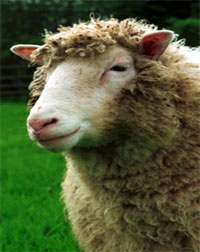Animals & Bioengineering
A Consideration of Law, Ethics and Science
November 9-10, 2007
Duke University School of Law
Durham, NC
Since 1976, when genetic material from one species was first introduced into another, animal bioengineering has been a controversial topic. Join us for this exciting and innovative conference, as lawyers and scientists from across the country come together to explore and discuss the evolution and development of laws relating to the use of animals in bioengineering.
Background
The development of the biotechnology industry took off in 1976 when Genentech Inc. became the first corporation formed to develop technology that employed the introduction of genetic material from one species into another. In 1980, the U.S. Supreme Court overturned a United States Patent and Trademark Office determination that living organisms were not patentable, and ruled that an oil-eating bacterium developed by a General Electric Company researcher for cleaning up oil spills could be the subject of a patent. That same year, scientists at Ohio University in Athens transferred human growth genes into mice to create the first transgenic animals.
The United States Patent & Trademark Office announced in 1987 - against strong public opposition - that nonhuman animals are patentable subject matter, and in 1988 awarded the first patent to the "onco-mouse," a cancer-prone mouse created at Harvard University. Thousands of varieties of transgenic mice have since been created to serve as models for various human diseases.
In December of 2002, the Canadian Supreme Court ruled that living creatures can not be patented in that country. The decision arose from Harvard University's 17-year effort to patent its "Harvard Mouse" in Canada. The high court determined that animals' capacity to display emotion separates them from more basic life forms and shows they are more than a composition of matter.
Preparation, Papers & Logistics
The Animals and Bioengineering Conference will bring together, for the first time, animal law and patent attorneys, litigators, scientists, ethicists, government regulators and industry representatives to explore the evolution and development of laws relating to the use of animals in bioengineering. This Conference will discuss some of the many ways in which animals are currently being used in bioengineering, including producing human medicines in transgenic animals, producing disease resistant farm animals, cloning animals for xenotransplantation and cloning animals for food applications. Both the present state of the law and the possible need for changes in the law will be addressed. For those new to these issues, there will be primer presentations on the ethics and science of genetic engineering.
CLE Credit
The N.C. State Bar has certified the conference for 9.25 CLE credit hours and is still assessing how much CLE credit should be accorded three of the presentations ( 1 ?34 hrs). The conference organizers believe a total of 11 CLE hours will be certified. Please visit the Continuing Legal Education page.
Sponsorship
The Animals and Bioengineering Conference is presented by the ABA Tort Trial and Insurance Practice Section (TIPS) Committees on Animal Law; Intellectual Property Law; Media, Privacy, and Defamation Law; the ABA Section of Science and Technology,Law, ABA Special Committee on Bioethics and the Law and Duke University School of Law.
Financial Support Provided By:
- The Bob Barker Endowment Fund for the Study of Animal Rights Law [Duke Law School] (for general expense)
- The Animal Legal Defense Fund (for Nov. 10 luncheon)
- North Carolina Association for Biomedical Research (for Nov. 9 luncheon)
- Womble, Carlyle, Sandridge & Rice (for speakers' dinner, Nov. 9)
- Covington & Burling (for travel expenses of speakers)
